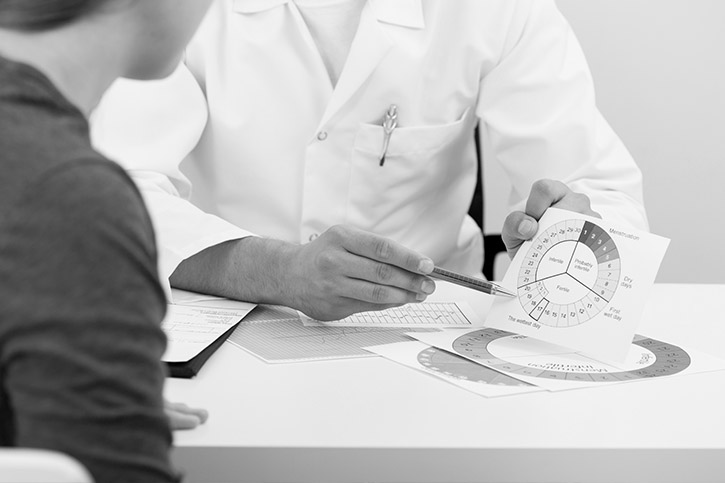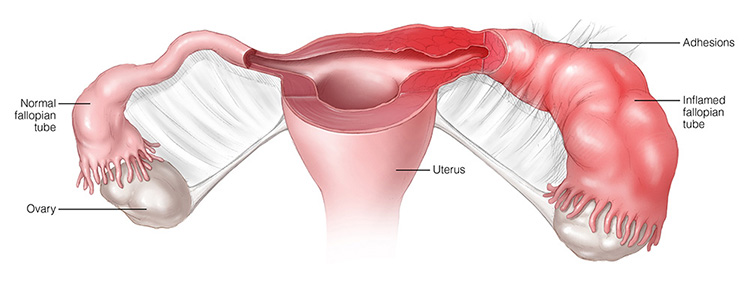Pelvic inflammatory disease (PID) is an infection and inflammation of the organs and tissue in the pelvis. This includes the cervix (the opening of the uterus), the endometrium (the lining of the womb), the fallopian tubes, the ovaries and other abdominal organs.
It is usually sexually transmitted, but it can also be caused by a bowel infection, a ruptured appendix, and surgery.

Let’s take a look at the causes and risk factors, symptoms, and treatments of pelvic inflammatory disease, or PID.
PID is very common amongst women who are sexually active, affecting around one in eight women at some point in their life. However it is easily treated when detected early, so be sure to see your gynaecologist if any symptoms arise.
What Causes and Risks of Pelvic Inflammatory Disease?
PID occurs when bacteria makes its way up from the vagina to the cervix and other pelvic organs. Many cases are the result of sexually transmitted infections such as chlamydia and gonorrhoea (although there are other types of bacteria that can be responsible), and therefore women who have unprotected sex are at a higher risk of developing the disease.
While STIs are the most common cause of PID, it can also develop following surgery in the pelvic region (such as the insertion if an IUD or termination of a pregnancy), childbirth, a burst appendix or infection of the bowels.
Younger women who are sexually active have a higher risk of developing PID – it is most common between women aged 15-25. Those that have had PID before are also at higher risk.
Symptoms of Pelvic Inflammatory Disease
Pelvic inflammatory disease often does not present any symptoms and can go untreated. When symptoms do present themselves, they can come on quickly and include:
• Back pain and/or pain in the lower abdomen
• Pain during sex or urination
• Irregular periods
• Abnormal/foul smelling vaginal discharge
• Bleeding after intercourse
• Fever, chills and nausea
If you have any of these symptoms, you should see your gynaecologist. Women that do not present any symptoms are still at risk of further complications, and this is why it is encouraged that you see your gynaecologist at least once a year.

Potential Complications
If PID goes untreated, it can lead more serious complications, such as:
• Pelvic pain
• Infertility
• Ectopic pregnancy
• Pregnancy complications (miscarriage, premature birth, and stillbirth)
Pelvic Inflammatory Disease Treatment
Treating pelvic inflammatory disease is simple, requiring a course of antibiotics to kill the infection. It is important to finish the entire course of antibiotics, even if the symptoms disappear, as the infection may still be lingering. A follow-up to ensure the infection is completely gone is recommended.
If the disease has lead to further complications, then the treatment will be an entirely different process. Again, it is very important to seek help from your gynecologist as early as possible to avoid serious complications!
Women with more serious symptoms such as fever, nausea and vomiting may need to be admitted to hospitalised to have the antibiotics administered intravenously. The same goes with women who are pregnant as it is a much safer than taking them orally.
If you have any questions pelvic inflammatory disease or any other gynaecological concerns, or would like to book an appointment, please don’t hesitate to give us a call. Dr Bevan Brown is one of the most renowned gynaecologists and obstetricians in the Hills District with a focus on empathetic and individualised care.